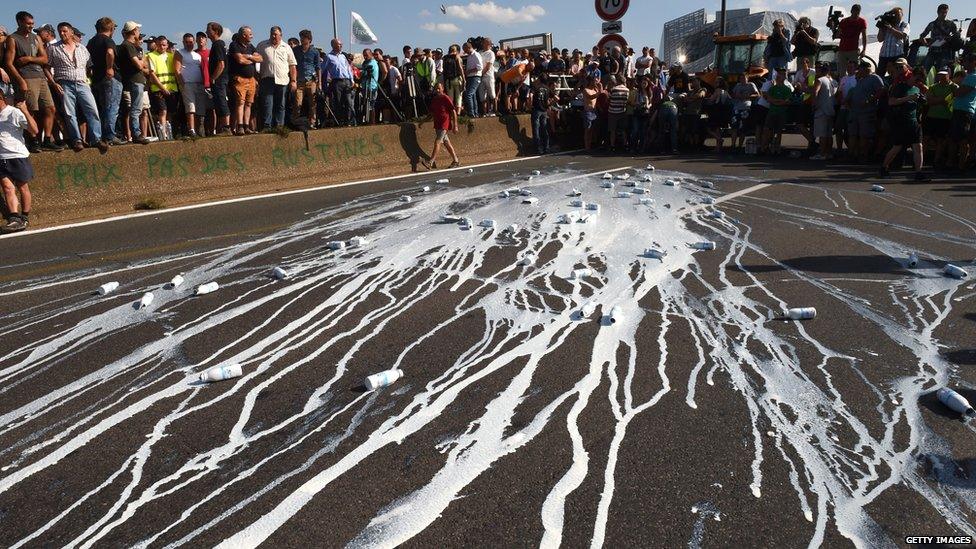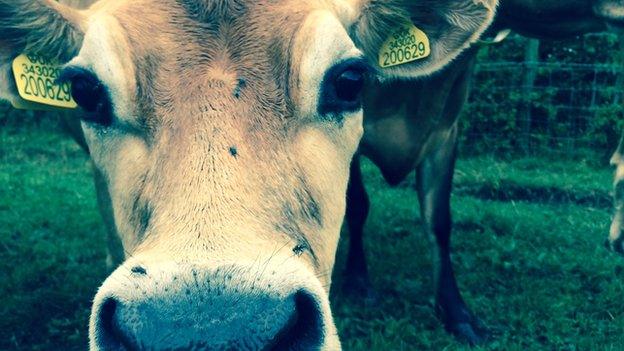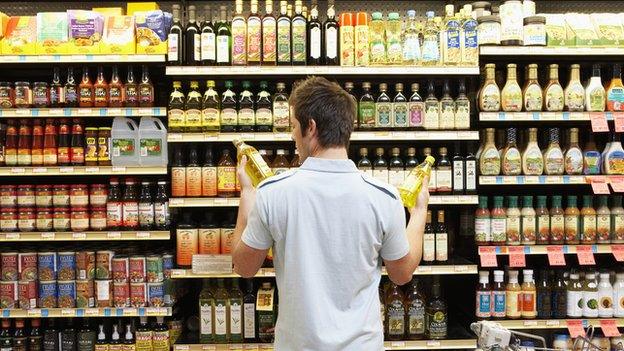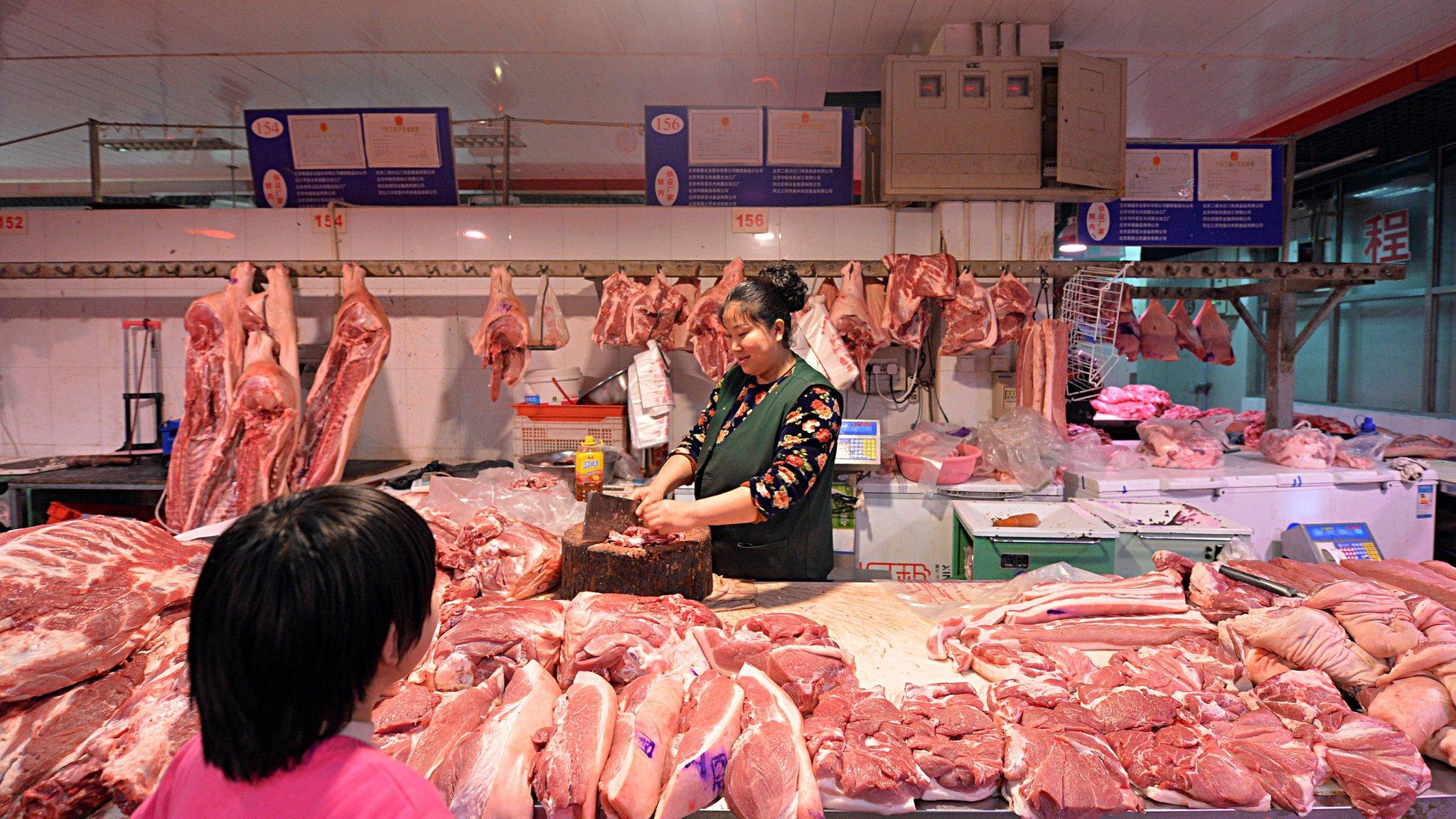Global food prices fall at fastest rate in seven years
- Published

The cost of falling prices - French famers in Lyons last week smash milk cartons in protest at plunging prices
Last month saw a 5.2% fall in global food prices, the biggest drop in seven years, according to the UN.
Its Food and Agriculture Organization (FAO) saw monthly falls in all major commodities, from milk and vegetables to oils, sugar and cereals.
Food producers are being hit by slowing demand in China and a Russian embargo on Western products.
Now the European Commission is to release €500m ($557m) to help Europe's farmers.
The commission said the most significant part of the package would support the dairy sector in all EU member states.
Dairy farmers have suffered a 20% fall in European wholesale milk prices in the past year.
The European Commission aid comes on top of extra help for European fruit and vegetable farmers, who have been hit by the Russian embargo on Western food imports in retaliation for EU and US sanctions over the crisis in Ukraine.
Angry farmers
Farmers across Europe have been protesting in recent weeks against the plunging prices that they say are destroying their businesses.
On Monday, Belgian police fired tear gas and water cannon at some 7,000 European farmers demonstrating Brussels.
Last week, French farmers blocked the streets of Paris with more than 1,500 tractors.
But the falling prices are unlikely to be reversed any time soon.
The FAO said in a statement: "Ample supplies, a slump in energy prices and concerns over China's economic slowdown all contributed to the sharpest fall of the FAO Food Price Index in almost seven years."
The FAO has raised its forecast for world cereal output in 2015 to 2.54 billion tonnes, thanks to what looks like good wheat and rice harvests in Argentina, Brazil and the US,
- Published10 August 2015

- Published20 July 2015

- Published10 September 2015
